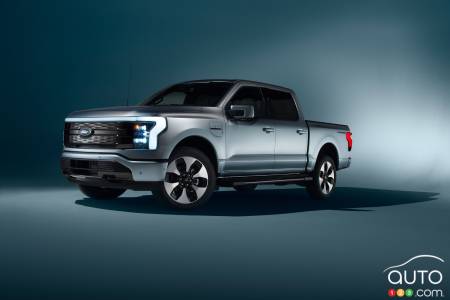The White House announced today that U.S. President Joe Biden will soon sign an executive order setting an ambitious goal for new electric vehicle sales by 2030. The administration wants 50 percent of American automakers' U.S. sales to consist of electric, plug-in hybrid or hydrogen-powered models by that year.
While this is a non-binding goal, Ford, General Motors and Stellantis have already issued a joint statement welcoming the target:
“Today, Ford, GM, and Stellantis announce their shared aspiration to achieve sales of 40-50 percent of annual U.S. volumes of electric vehicles (battery electric, fuel cell, and plug-in hybrid vehicles) by 2030...”
- Joint Ford, General Motors and Stellantis statement
The executive order also sets a timeline for stricter fuel economy standards for commercial vehicles, including light-, medium- and heavy-duty models. The targets are expected to take effect with the 2027 model year for light-duty vehicles and in 2030 for medium- and heavy-duty models.

If the plan’s targets are met, the U.S. could reduce greenhouse gas emissions from passenger vehicles by more than 60 percent from 2020 levels by the end of the decade. This would pave the way for President Biden's more ambitious goal of reducing greenhouse gas pollution by 50-to-52 percent by 2030 from 2005 levels.
Elsewhere
The plan is aimed at U.S. automakers, of course, because Washington can't dictate to other industry players. However, the plan has been very well received elsewhere. Hyundai gave its thumbs up, and Toyota said the goal is “great for the environment” and that the government “can count on Toyota to do our part”. BMW, Ford, Honda, Volkswagen and Volvo issued a joint statement:
“We support the Administration's goal of reaching an electric vehicle future and applaud President Biden's leadership on reducing emissions and investing in critical infrastructure to achieve these reductions.”
- Joint BMW, Ford, Honda, Volkswagen and Volvo statement